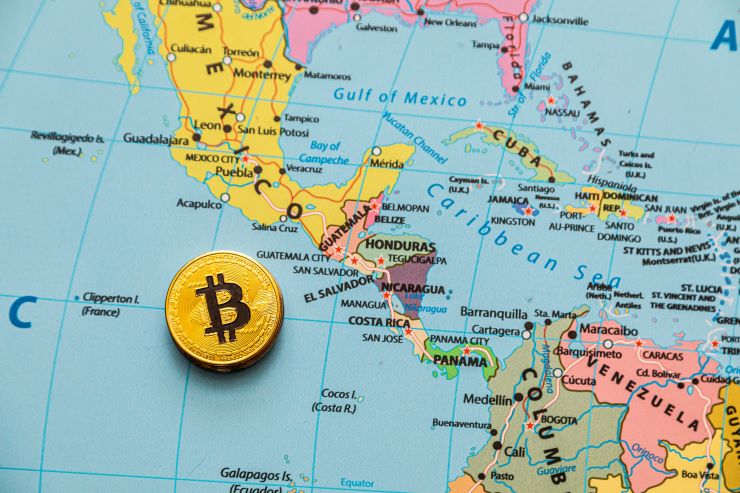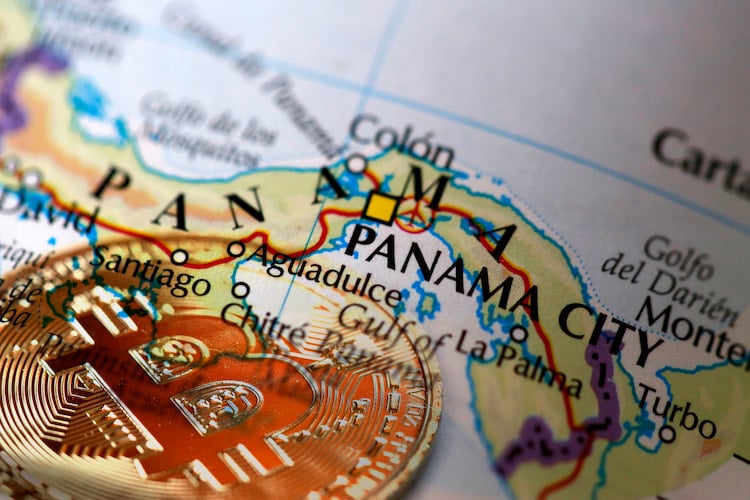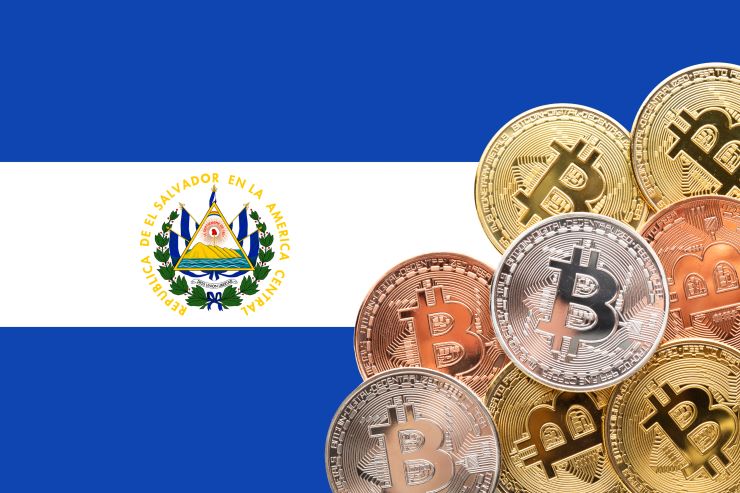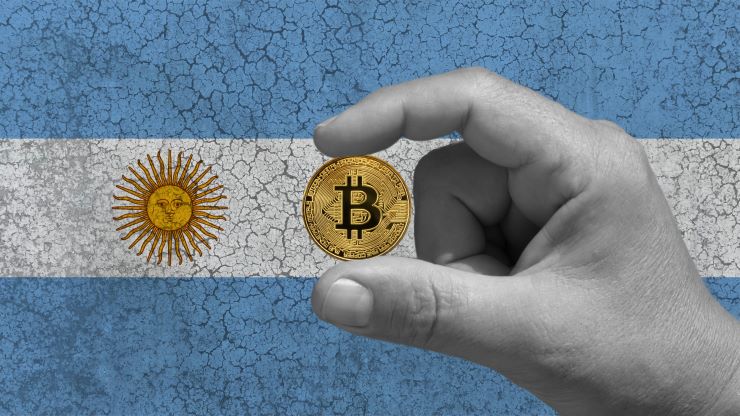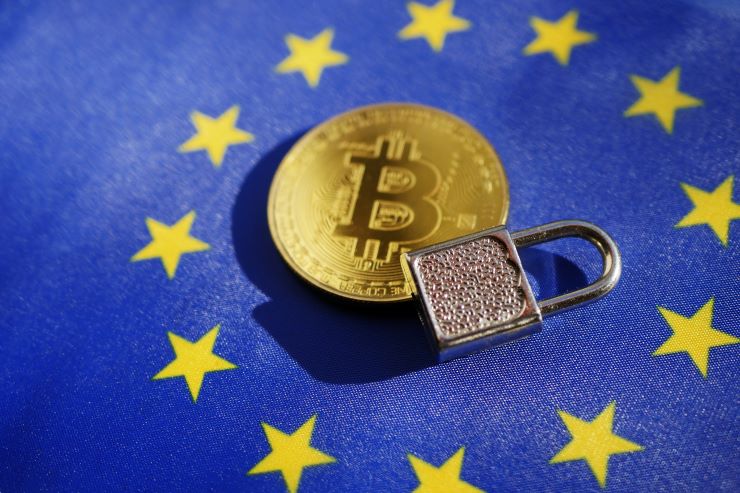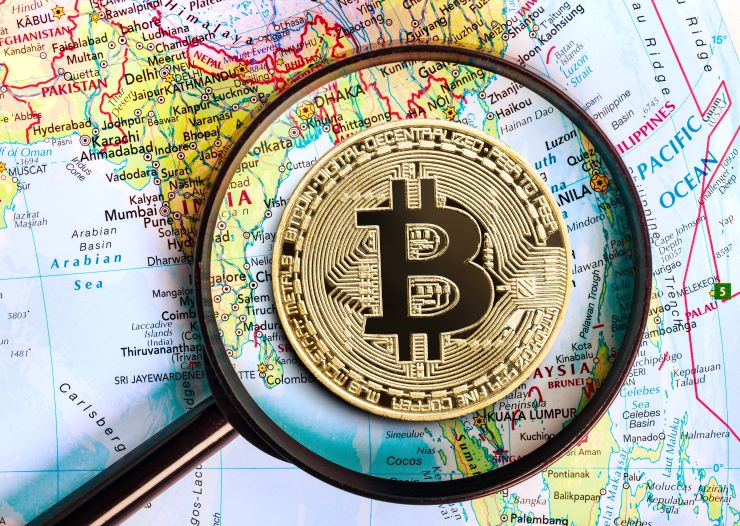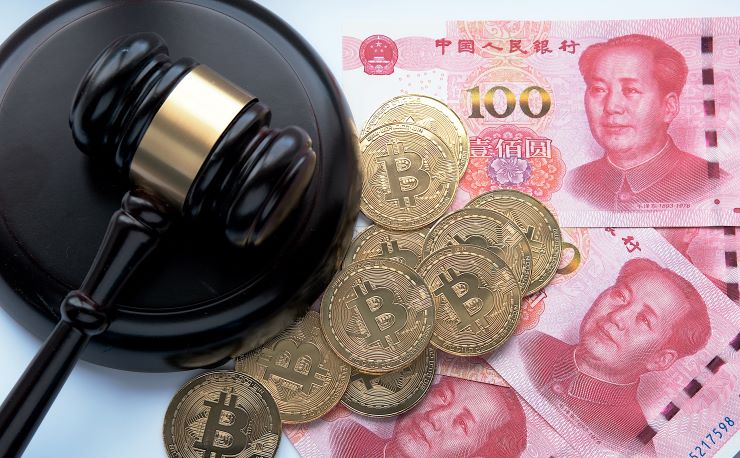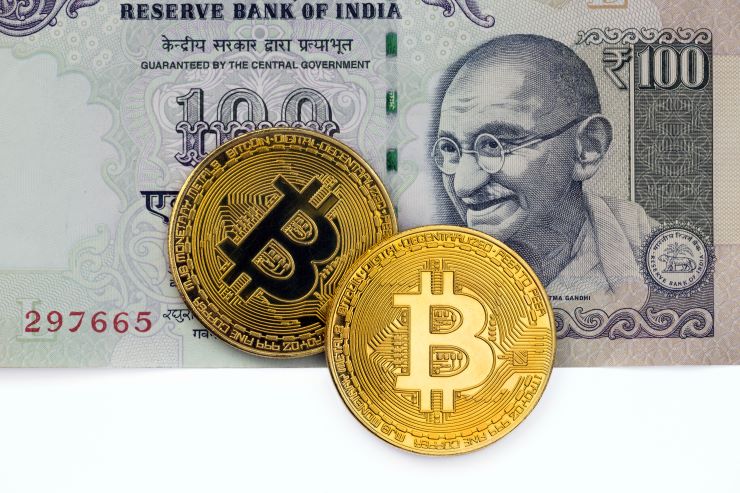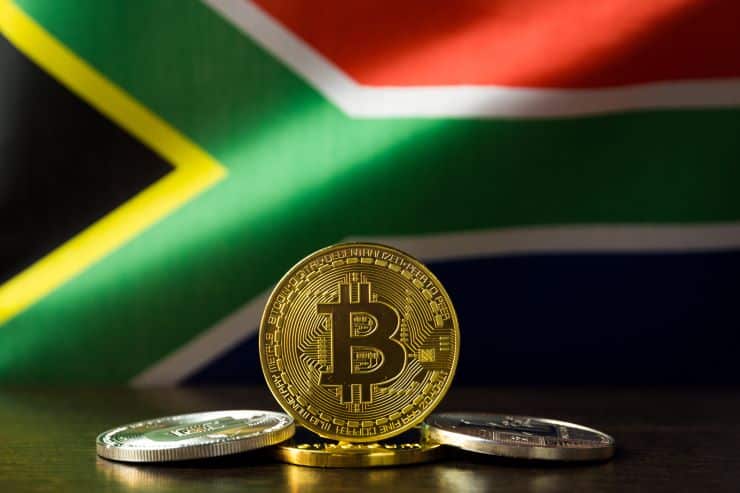- Crypto Casinos
- Bitcoin Games
- Reviews
- Learn
- Essentials
- Are Bitcoin Casinos Legal?
- Crypto Wallets for Gambling
- VPN for Bitcoin Casinos
- What is RTP?
- Gambler’s Fallacy
- Deposit with Credit Card On Bitcoin Casino
- Bankroll Management
- How To Play Bingo
- What Casino Game Has the Best Odds
- Best Casino Game To Win Money
- How VIP Programs Work
- RNG in Casinos
- Slot Machine Odds
- How Free Spins Work
- Poker Cheat Sheet
- Guides
- How to Play Texas Holdem Poker
- How to Play Three Card Poker
- How to Play Pai Gow Poker
- How To Play Omaha Poker
- How to Play Caribbean Stud Poker
- How to Play Seven Card Stud
- How to Play Mississippi Stud Poker
- Poker Odds Guide
- Card Counting in Blackjack
- What is a Blackjack Split
- What is a Push in Blackjack
- Roulette Wheel Explained
- How to Play Craps
- Craps Odds Explained
- Craps Come Bet
- How to Play Baccarat
- Moneyline Betting Explained
- Arbitrage Betting Explained
- How Sportsbetting Betting Odds Work
- Video Poker Odds
- Limit vs No Limit Poker
Is Bitcoin Gambling Legal: Country Specific Crypto Laws
Bitcoin gambling is legal in most countries but there are some nuances depending upon their use-case, as we’ll learn below.
When it comes to the subject of Bitcoin’s legality, geolocations are the most important factor. Depending on the country and its regulations, Bitcoin is legal and recognized as a digital asset/commodity, or strictly prohibited or limited in its application.
Some countries will more often than not have laws, rules, and regulations that give a defined structure for the utilization of cryptocurrencies and crypto casinos, and at the same time protect the consumers and prevent illegal activities like terrorism financing and money laundering.
On the flip side, quite a few countries seem to have picked up more prohibitive and cautious habits regarding cryptocurrency gambling and crypto in general. These nations might have regulations limiting their use or making them illegal. Of course, this can change over time as countries continue to expand their knowledge of digital assets.
However, even in countries where Bitcoin is legal, crypto gambling on certain platforms may be restricted. This is where using a reliable VPN will come in. This will allow players to access online Bitcoin casinos safely and enjoy games and bonuses.
North America
United States – Legal based on State
The legality of gambling online is very different from one state to another in the United States. Despite this, Bitcoin gambling is generally not illegal. It is vital to note that a few states also have very emphatic laws that state clearly how some forms of gambling are illegal. So checking regulations and laws in your state is important.
Bitcoin is legal in the United States as of 2024. The government categorizes Bitcoin as a digital asset, so it is not illegal to use it or own it. However, the laws surrounding Bitcoin will change depending on the state, as some states might have more specific regulations concerning cryptocurrencies.
Bitcoin and other cryptocurrencies like it are considered by the IRS (US Internal Revenue Service) as property for the sake of tax calculations. This means gains that may arise from winnings on Bitcoin gambling casinos or exchanging it could be subjected to capital gains tax.
Also, the SEC (US Securities and Exchange Commission) has said some kinds of cryptocurrencies could be considered securities. This would mean that those cryptocurrencies would be subjected to federal securities laws that require compliance with regulatory requirements such as registration with the SEC.
In all, Bitcoin is legal in the USA. However, businesses and individuals need to follow the laid out laws and regulations related to using it. Bitcoin gaming is also legal in the US. Crypto casinos like Mega Dice provide a secure way to enjoy gambling while respecting your privacy and anonymity.
Using a trusty VPN may be necessary for players in the United States.
Canada – Legal and Regulated
Crypto gambling in Canada is completely legal. This has led to an ever-increasing number of crypto sports betting and gaming platforms in the country. It is up to players to find platforms that allow them to wager safely, so doing your in-depth search is crucial.
A regulatory framework that recognizes Bitcoin as a legal form of payment has been established by the Canadian government. This has embraced the use of Bitcoin and other cryptocurrencies in trade, crypto gambling, and more. In Canada, Bitcoin can be freely bought, sold, and traded by individuals as well as businesses.
The same tax laws that apply to other investment assets are applied to Bitcoin by the Canada Revenue Agency (CRA), which sees it as a commodity. Therefore, any capital gains or losses coming from Bitcoin casino transactions must be reported by individuals.
Profits from buying, selling, or winning Bitcoin in crypto casinos will be subject to capital gains tax. The CRA also mandates that any business accepting Bitcoin for payment needs to state the value in Canadian Dollars of the Bitcoin at the time the transaction occurred. This is done for tax purposes.
Furthermore, the Canadian Securities Administrators (CSA) has said some kinds of cryptocurrencies might be regarded as securities. This will make them subject to securities laws in Canada, implying a need to register with the CSA and follow any other regulatory requirements.
Bitcoin is currently legal in Canada along with other virtual currencies. People and companies are urged to keep up with regulatory developments and ensure that applicable legislation is followed. Crypto casinos are also legal and gambling enthusiasts can sign up for a No-ID Bitcoin casino like Lucky Block to start playing.
Mexico – Tolerated but Unregulated
Online casino betting in Mexico is regulated by laws and acts like the Federal Gaming and Raffles Law. These laws are then enforced by the Bureau. Outside of this, online betting is strictly prohibited. The problem with this is the definition of online games according to some parts of the Gaming Act.
Since this definition is not all-encompassing, crypto casinos are a grey area in Mexico, meaning players still use them at their discretion.
Even though cryptocurrencies and Bitcoin are not currently considered legal tender in Mexico, they are not illegal. Virtual currencies and Bitcoin are not currently regulated by the Mexican government, however, the Central Bank has warned of potential risks associated with making investments in them.
Mexico’s congress even approved a bill in March of 2018 to regulate cryptocurrencies and the institutions that would operate in the crypto industry. However, since this bill has not been wholly put into effect, the overview of final regulations remains unclear.
Despite this, many Mexican businesses accept Bitcoin and other cryptocurrencies for payment. Citizens also use crypto as a store of value, and send allowances of their chosen virtual currency to family members outside the country.
Although Bitcoin gambling, mining, and trading are generally tolerated in Mexico, it is still important for people and businesses to be cautious and knowledgeable of the potential risks associated with using digital or virtual currency in Mexico.
This will mean doing your due diligence is vital when selecting a crypto casino for games. Sites like Lucky Block and Mega Dice offer this much-needed security and protection to gamblers in Mexico. So you can stake on games and sports rest assured.
Central America
There are various nations in Central America, and each has a unique stance on whether Bitcoin and other cryptocurrencies are legal. Here is a summary of how Bitcoin is doing right now in some of the Central American nations:
Costa Rica – Legal and Unregulated
Bitcoin gambling is not illegal in Costa Rica but is also not extensively documented in the country’s laws. However, since online gambling is legal under the Costa Rica gaming law, and Bitcoin usage is permitted – players are good to go as long as they stay weary and cautious of the sites they use.
The law covers online gambling and allows companies with gambling licenses to operate online casinos in the country.
The usage of Bitcoin and other cryptocurrencies for gambling and daily transactions is usually permitted in Costa Rica, and there are no particular regulations that forbid it.
The nation does not, however, have extensive legislation governing the cryptocurrency sector. For users and businesses, this lack of regulation can present both opportunities and threats. Cryptocurrencies are not regarded as legal cash and are not supported by any central authority, according to the Central Bank of Costa Rica.
Although using and trading cryptocurrencies is completely up to the person, users should be aware of the potential hazards and lack of consumer protections in the absence of clear legislation.
Panama – Legal
Crypto gambling is legal in Panama by the extension of the laws that make online gambling legal in the country. Bitcoin gambling may also be regulated since general online gambling is regulated and the AML regulates crypto services.
Blockchain technologies and cryptocurrencies are seen favorably in Panama. In the nation, using and trading Bitcoin is legal. One of the first nations in the region to adopt a regulatory framework for cryptocurrencies was Panama in 2019.
This framework intends to give individuals and enterprises engaged in Bitcoin activity clarity and legal certainty.
The Ministry of Economy and Finance in Panama issues licenses to cryptocurrency exchanges operating there. Following anti-money laundering (AML) and know-your-customer (KYC) requirements is an obligation for this licensing process.
The government’s proactive attitude to cryptocurrency regulation points to a favorable atmosphere for the development of the technology.
El Salvador – Tolerated, Grey Area
Although many forms of gambling were previously banned in El Salvador, the legality of online casinos is unclear. The country has four official casinos situated in hotels and about 25 smaller locations across the nation.
Citizens and persons in El Salvador are also not stopped from internet gambling. This means people in this country can gamble with Bitcoin at their discretion since Bitcoin is legal tender here.
El Salvador made international news in 2021 when it became the first nation to accept Bitcoin in addition to US dollars as legal money. The government’s choice aims to encourage financial inclusion and lower remittance expenses for its inhabitants. Businesses must accept Bitcoin as a means of payment alongside the US fiat currency.
Also, Bitcoin can be used for transactions and payments, as well as playing your favorite games at crypto casinos; whether that be poker, blackjack, or slots.
Global interest and discussion have been aroused by El Salvador’s decision to accept Bitcoin as legal cash. Although there may be advantages to the change, it also raises issues with infrastructure, volatility, and financial literacy. The results of this experiment will probably have an impact on how other nations in the region and beyond view things.
South America
South American countries may have very differing stances on the legality of Bitcoin gambling. Some countries have more welcoming regulatory environments than others.
Generally, only a few South American countries have specific regulations that take a cautious approach to Bitcoin and other cryptocurrencies. Most countries don’t outright prohibit them since there are no targeted laws.
Here’s a quick review of the present status of Bitcoin in a few South American nations:
Brazil: In Brazil online gambling is heavily regulated. Bitcoin is unregulated but legal. This means that although you’re free to use your Bitcoins as you please, gambling online with Bitcoin might be very strict.
Argentina: Online gambling is allowed in Argentina. The Central Bank of Argentina has warned its citizens of the associated risks with cryptocurrencies and digital assets.
Colombia: Bitcoin casino betting is legal in Colombia but Bitcoin is unregulated in the region. Warnings have been issued by the Colombian government.
Uruguay: Gambling in Uruguay has been legal since 1819, and Bitcoin online gambling is also legal. Cryptocurrencies are legal and unregulated. It has been recognized as a method of payment by the Uruguayan government.
Chile: Bitcoin betting is also legal but unregulated here. The government of Chile has sent out warnings of risks surrounding cryptocurrencies.
Ecuador: Ecuadorian regulations make Bitcoin gambling completely illegal in the country. Cryptocurrencies are both illegal as well as prohibited by the law.
It is vital to state that the environment for the regulation of Bitcoins betting and cryptocurrencies in South America can change over time. Businesses and individuals interested should strive to be aware of all important laws concerning the utilization of Bitcoin in their countries.
Europe
Europe is made up of a wide variety of nations, each of which has its stance on whether Bitcoin casinos and cryptocurrencies are legal.
Depending on the country, however, a VPN may be necessary to access crypto casino sites.
Here is a summary of how Bitcoin is doing right now in some European nations:
United Kingdom – Legal and Regulated
The UK heavily regulates crypto gambling. This means that casino sites wishing to offer Bitcoin as a means of payment or withdrawal for customers must meet basic requirements for disclosing the source of funds on application, KYC, and more.
In the United Kingdom, using and trading Bitcoin is permitted. Cryptocurrencies are recognized as property by the UK government and are therefore taxed on capital gains. To stop illegal activity, cryptocurrency exchanges and businesses operating in the UK are expected to adhere to anti-money laundering (AML) and know-your-customer (KYC) legislation.
The Financial Conduct Authority (FCA) of the UK regulates the cryptocurrency market and offers advice to both consumers and corporations. In general, the UK has actively pursued cryptocurrency regulation while supporting financial innovation.
Germany – Legal and Regulated
Crypto betting is legal in Germany, provided that the online casinos are regulated and licensed appropriately by the bodies in charge. For instance, possessing a Curacao iGaming license is great for Bitcoin casinos here.
In Germany, Bitcoin is recognized as a financial instrument and is therefore legal. When gains are realized, cryptocurrency transactions and crypto casino winnings are taxed on capital gains. The Federal Financial Supervisory Authority (BaFin) has created clear regulations for cryptocurrency exchanges and businesses, requiring them to seek licenses.
The regulatory framework in Germany strives to safeguard consumers, stop money laundering, and foster an environment of transparency for Bitcoin activity. The fact that the nation now recognizes cryptocurrencies as financial instruments highlights how important they are to the current financial system.
France – Legal and Regulated
Online gambling is regulated in France by the Pari Mutuel Urbain (PMU) and Francaise des Jeux (FDJ). Bitcoin gambling is legal but also heavily regulated. This is to prevent underage gambling and also mitigate against excess losses on games of chance.
In France, it is acceptable to trade, use, and gamble Bitcoin. When earnings are made, cryptocurrency transactions are subject to capital gains tax. With an emphasis on AML and KYC procedures, the French government has introduced legislation to control cryptocurrency exchanges and wallet providers.
To encourage uniformity across member states, France has also actively pushed for EU-wide laws for cryptocurrencies. In the nation’s strategy, it is emphasized how crucial it is to strike a balance between innovation and regulatory monitoring.
Switzerland – Legal
Bitcoin sports betting and casino gaming are legal in Switzerland on a conditional basis. The condition is that the casino platforms must be supported by a licensed site that also has partnerships with land-based casinos.
The country of Switzerland is renowned for its support of blockchain technology and cryptocurrencies. In the nation, using and trading Bitcoin is legal. With the introduction of legislation that provides legal certainty for initial coin offers (ICOs) and cryptocurrency activities, Switzerland has established itself as a global hotspot for blockchain firms.
This also makes it a great region for crypto gambling enthusiasts, as they are allowed to freely enjoy using their Bitcoins for casino games from whichever device they prefer; whether that be iPhone, Android, or iPad.
The AML and KYC regulations are enforced by the Swiss Financial Market Supervisory Authority (FINMA), which also oversees cryptocurrency enterprises. A sizable number of blockchain-related investments and projects have been drawn to Switzerland because of its friendly regulatory environment.
Netherlands – Legal
Online gambling hasn’t always been legal in the Netherlands. However since legislative changes to the issuance of remote gambling licenses took effect in 2021, Bitcoin gaming is now legal in the country.
In the Netherlands, Bitcoin is accepted as a form of property and is hence legal. When gains are realized, cryptocurrency transactions are taxed on capital gains. AML and KYC procedures must be implemented by cryptocurrency exchanges and wallet providers for the Dutch government to regulate them.
The Netherlands’ approach to cryptocurrencies places a strong emphasis on risk reduction and consumer safety. The nation’s regulatory structure attempts to deter illicit activity while fostering innovation in the field of digital banking.
Spain, Italy, and Other European Countries – Legal and Regulated based on Country
Numerous other European nations have also acknowledged the legitimacy of Bitcoin gambling, including Spain, Italy, and others. By AML and KYC criteria, these nations have implemented legislation to control cryptocurrency-related operations including exchanges and wallet services.
So cryptocurrency gambling is regulated or unregulated based on the country.
To promote uniformity and prevent regulatory arbitrage, the European Union (EU) has expressed interest in standardizing cryptocurrency legislation among its member states.
Although some individual countries might have different levels of regulatory strictness, the overall trend in Europe is to form a clear and secure environment for cryptocurrency users and businesses.
Asia
Bitcoin’s legal status in Asia varies across the board. Different countries approach cryptocurrency gambling differently here. Here is a brief overview of this, showing some of the main countries with Bitcoin news in the region:
Japan: Even though Bitcoin is legal in Japan, online gambling is still illegal in the country. Bitcoin has also long been recognized as a means of payment for goods and services by the Japanese government.
South Korea: Online gambling is illegal in South Korea even though Bitcoin is legal. The South Korean government has also expressed concerns about the risks associated with cryptocurrencies.
Singapore: Bitcoin gaming and Bitcoin gambling have a clear separation point in Singapore. Blockchain games are permitted as long as they comply with the Remote Games of Chance Licence Order. However, gambling of all forms, not just crypto, is illegal in Singapore.
China – Illegal and Prohibited
All crypto trading and transactions as of 2021 are outlawed in China. This includes crypto gambling, and other activities like mining, trading, and more. Currently, any defaulters working in crypto companies or similar startups could face serious jail time.
The status of Bitcoin’s legality in China is complicated and ever-changing. Even though Bitcoin was classified by the Chinese government as a virtual commodity in a statement issued in 2013, bans on ICOs that ordered crypto exchanges to be closed were placed in 2017.
India – Legal
Bitcoin online casino gaming is not just legal, but taxable in India according to the Law. So the masses in the country have easy access to gambling and gaming on the most popular global casino platforms for cryptocurrency.
After the March 2020 ruling by the Supreme Court, the legal status of Bitcoin and other virtual currencies in India is unclear. Even though they aren’t legal tender, they aren’t illegal as well. However, crypto assets cannot be used for banking reasons in the country and there is a 30% tax on all digital assets.
In the meantime, strict regulations have been placed on crypto exchanges, as the Indian government has expressed worries about the inherent risks that may be associated with cryptocurrencies. Risks like terrorist financing and money laundering.
Luckily, crypto casino platforms like Lucky Block and Mega Dice follow regulations that make it safe for gamblers in India to deposit, place bets, and withdraw their Bitcoin earnings. With a full Curacao Gaming license and no KYC checks needed, users know they can maintain anonymity while using these trusty crypto casinos.
Oceania is a multifaceted region that comprises various countries, each country with its own regulations and laws concerning Bitcoin gambling. Here is a quick review of some countries in Oceania and their current Bitcoin and crypto gambling status.
Australia: Bitcoin sports betting is legal and has a well-defined regulatory framework in Australia. However, online casino gambling is prohibited, so some interactive activities like Keno may not be permitted. The country has been one of the pioneers of regulation in the region.
New Zealand: Bitcoin casinos are legal and regulated in New Zealand by the Department of Internal Affairs.
Fiji: Bitcoin and cryptocurrency gambling are presently unregulated in Fiji. Gambling enthusiasts can choose to wager safely in the country, with digital tokens on online platforms with a Fiji betting license.
Africa
Bitcoin gambling’s legal status in Africa varies across the board. Different countries approach cryptocurrencies differently here. While a few nations have accepted cryptocurrencies with open arms for trading, crypto gambling, and more, others remain cautious – even imposing outright bans. Here is a brief overview of this, showing some of the main countries with Bitcoin news in the region:
South Africa: Bitcoin gambling is legal and regulated in South Africa. The South African government does not recognize Bitcoin as a means of payment for goods and services enjoyed.
Nigeria: No specific regulations forbid Bitcoin casinos from operating in Nigeria. Bitcoin is also currently legal in Nigeria. Financial institutions are presently prohibited from rendering services to cryptocurrency exchanges by a circular issued by the Central Bank of Nigeria.
Egypt: Bitcoin gambling and all forms of digital currency are currently banned in Egypt.
Ghana: Cryptocurrency gambling is legal in Ghana. The Bank of Ghana has issued cautions on the use of digital assets and cryptocurrencies.
Kenya: Although Bitcoin gambling is legal here, the Central Bank of Kenya has issued a warning on the risks that may be associated with investing in cryptocurrencies.
Best Licensed Crypto Casinos Accessed By VPN
Here’s a review of some of the top online casinos for Bitcoin betting. These platforms work with your VPN of choice if you’re in a country with certain server restrictions.
- Lucky Block – Overall Best Crypto Casino Site for VPN
- Mega Dice – Hot New Casino for VPN Gaming
- CloudBet – Top Alternative VPN-Friendly Casino
1. Lucky Block – Overall Best Crypto Casino Site for VPN
Lucky Block stands out as the best legal crypto casino you can access with a VPN. This casino platform does not require players to provide KYC documentation before they can join and enjoy gaming.
This means opening a Lucky Block account is instant. Once open, players can deposit several different cryptocurrencies to get started with wagering, like XRP, Cardano, Bitcoin, Ethereum, and more.
With a minimum deposit of $1 or its crypto equivalent, it doesn’t take much to enjoy the amazing odds offered here. Withdrawals are also instant at zero withdrawal fees. The casino games and 4,000+ slot titles are supported by leading software developers like Evolution and Fantasma.
The platform also has a comprehensive sportsbook for betting enthusiasts. Offering the best of both worlds between crypto casino games like Roulette, and sports matches from the most famous leagues in the most exciting sports.
You can check out our full Lucky Block Review here.
2. Mega Dice – Hot New Casino Platform for VPN Gaming
Mega Dice is a brand-new casino that is highly compatible with the most trusted VPNs out there. This legal crypto casino operates under MIBS N.V. – a highly reputable entity. The casino platform also holds a Curacao license, that ensures it complies with the regulations of countries with crypto gambling laws.
Complying with regulations does not affect the signing-up process. Registration is straightforward since there are no KYC-check requirements on the platform. On first-time registration, new players also enjoy a 200% deposit bonus for up to 1 BTC and 50 free spins.
Mega Dice also supports a good number of well-known cryptocurrencies like USDT, ETH, XRP, ADA, DOGE, and more.
3. CloudBet – Top Alternative VPN-Friendly Casino
Dubbed “The Best DogeCoin Casino“, CloudBet is one of the more established crypto casinos. With over 10 years of active duty under its belt, this casino is a solid substitute for gamblers who want a bit of variety in their favorite casino list.
Cloubet offers thousands of casino games and a detailed sportsbook. Allowing players all over the world to enjoy crypto games popular in their regions and sports wagering on global sports. It also has similar titles to most of the best Bitcoin casinos out there, proving to be a handy alternative.
There’s also a wide selection of slots and provably fair games. Titles like Blackjack and roulette are available for gambling enthusiasts, simulation of real-life poker tables with live-virtual dealers.
A Cloudbet account can be opened instantly and anonymously. Offering cryptocurrencies like Bitcoin Cash, Litecoin, Pax, Ethereum, Tether, and more. All this at low transaction processing fees for deposits and withdrawals.
Is Bitcoin Gambling Legal: Final Thoughts
We’ve discussed the main factors affecting whether or not Bitcoin gambling and Bitcoin is legal across the globe. Although most countries do not recognize Bitcoin as legal cash, its use is typically not illegal. This gray area also extends to crypto casino gaming, making it permissible in most countries around the world.
However, different nations have quite different approaches to cryptocurrency regulation, with some being more open-minded than others. This also means crypto casino gaming is legal in those regions. So gambling on popular no-ID casinos like Lucky Block or Mega Dice is allowed for players, who can also use VPNs to access crypto sites in restricted regions.
While some nations have openly banned the use of cryptocurrencies, others have put restrictions or constraints in place. And there are still possible concerns even in nations where cryptocurrencies are regarded as legal, including market volatility, cybersecurity flaws, and regulatory ambiguity.
Due to the financial consequences of cryptocurrencies’ legal status, both individuals and businesses using them must be aware of their tax responsibilities.
Ultimately, the legal environment surrounding Bitcoin and other cryptocurrencies is complex and varied, necessitating ongoing awareness of local regulatory systems. It is recommended to get legal counsel before engaging in cryptocurrency-related activities.
FAQ
Is Bitcoin Gambling Allowed in North America?
The legality of Bitcoin gambling differs by nation. Before playing at Bitcoin casinos in North America, check your local state laws.
Can I Lose All My Money Invested in Bitcoin?
Since Bitcoin’s worth is subject to market forces that can cause an increase or decrease in value, there is a chance to lose a significant portion of the money used to buy Bitcoin. Just as with any other form of investment.
Is investing in Bitcoin safe?
The volatility of Bitcoin investing is true. Although it has proven growth potential, its value might also change a lot. Hence, it’s crucial to do your research and think about your risk tolerance before investing.
Tom Middleton is our crypto gambling expert with more than a decade of experience in the industry and a Master’s Degree in Journalism. He’s spent his career providing the public with thoroughly researched crypto gambling guides and reviews via several major publications as Business 2 Community and The Sun. Tom started working on BitcoinCasinos.com on 2022 and has happily dedicated his life to helping players make the most from their playtime, as an avid player himself, this is where his passion lies.
Recent Posts
-
Cryptocurrency Miners Stockpile Near-Record Amount Of Bitcoin Ahead Of Friday’s Supply Cut
-
Snoop Dogg And Roobet Join Forces To Create ‘Snoop’s High Rollers’ Slot Game
-
Adin Ross ‘Announces’ Surprise Retirement From Streaming At Age 23
-
Ethereum Revealed As The Leading Crypto For Blockchain Hacks In 2024
-
Softswiss Acquires Huge Stake In Europe’s Popular Social Casino SpinArena
1026/02/231006/09/239.705/01/239.704/03/249.405/01/239.205/01/239.107/03/24908/09/23904/03/248.924/01/238.510/10/238.427/03/248.408/09/238.227/02/24




